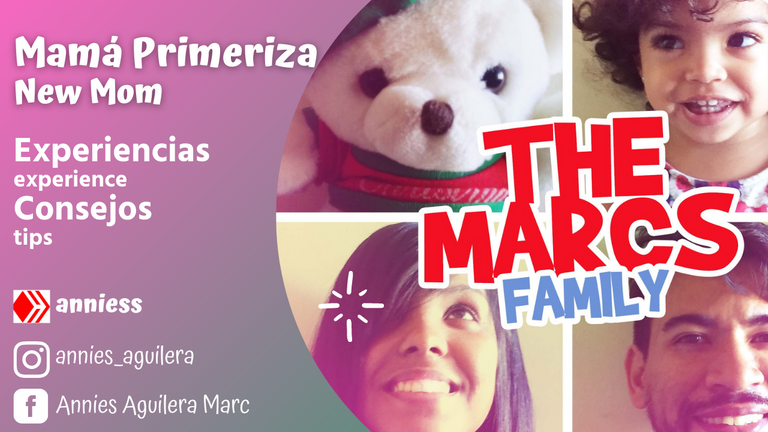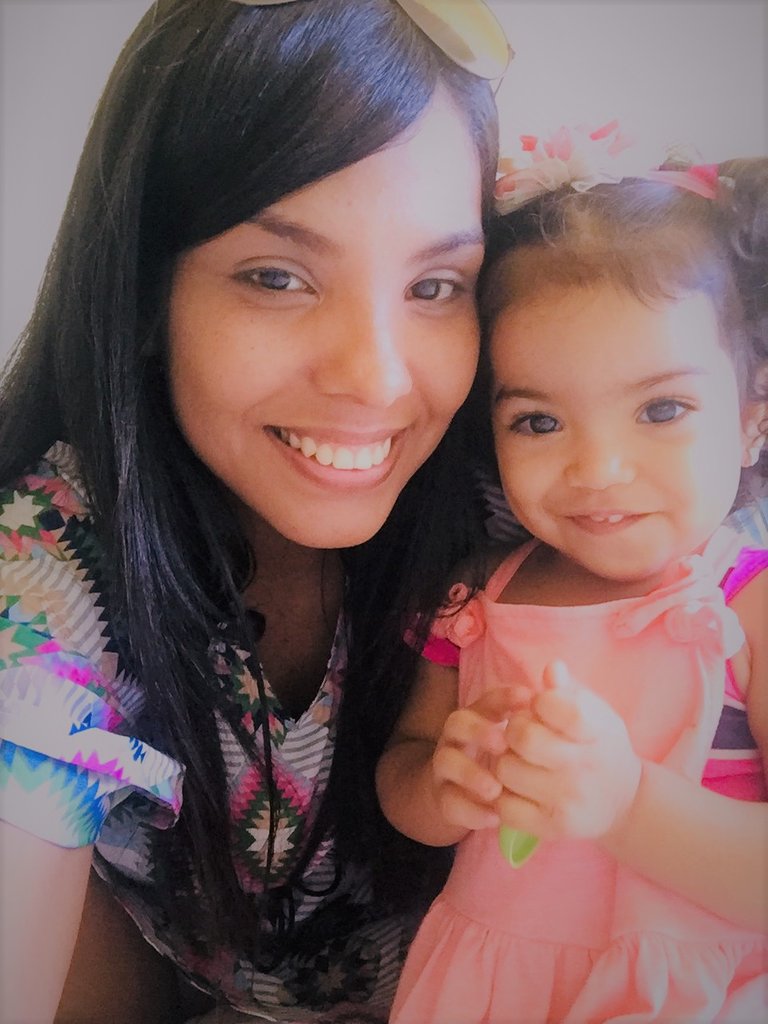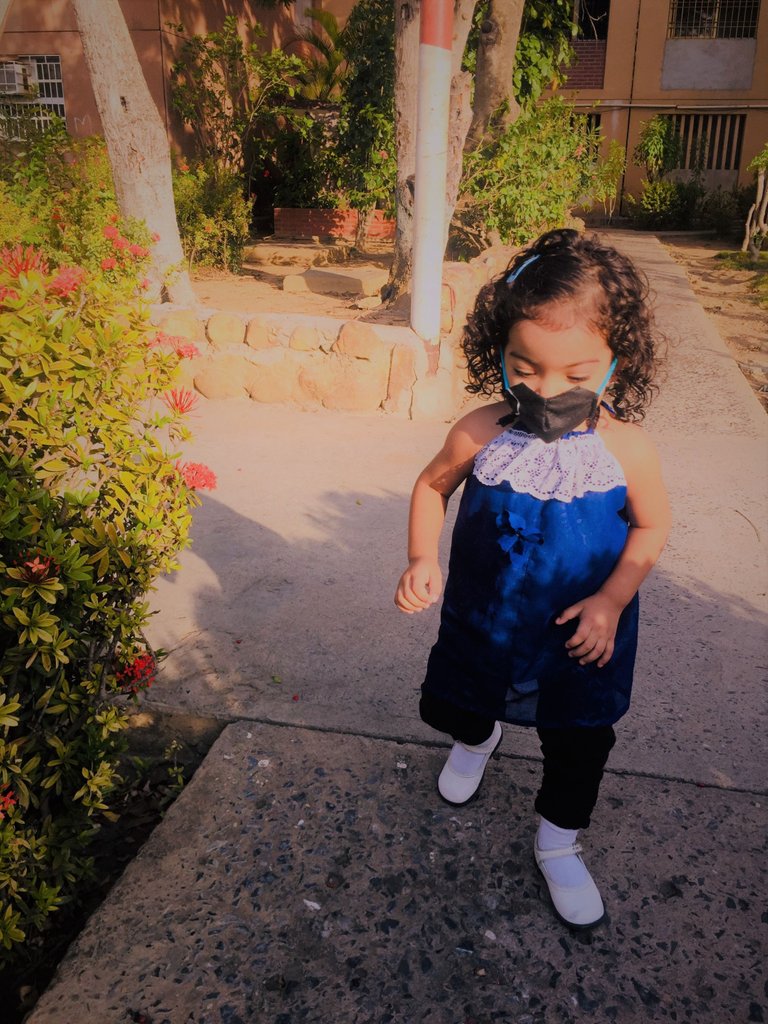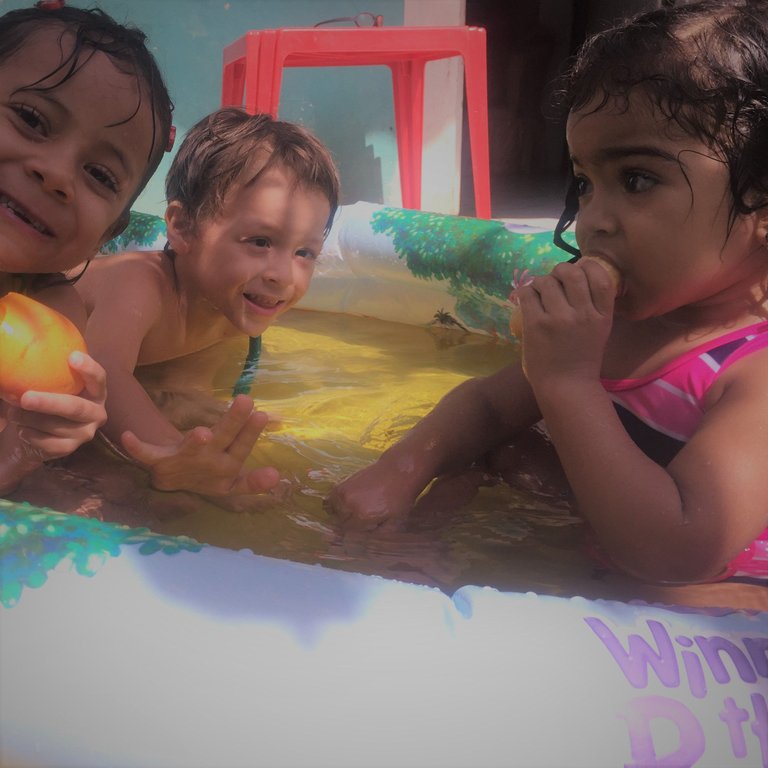Introducción | Introduction
Greetings friends of @motherhood, today is another day and therefore a new content to share, in that sense the experience I want to share is a topic that many parents, mostly I dare say that we are concerned as is the acquisition of language in our children, it is of great concern especially when we hear children younger than our children can communicate and express words without problems and our children still do not. And it is not a matter of competing with other children or comparing them, any parent feels concern and may think that the language delay in their child may be causing some disease. I say it this way because as first time parents it happened to us, we listened to children talk from the age of 20 months and our child was approaching 2 years old, and it was difficult for her to articulate words, our greatest concern arose when the pediatrician told us that if after the age of 2 years she was not pronouncing more words she would have to be treated in speech therapy.
Primera fase: Observación | First phase: Observation
In relation to the previous paragraph, it seemed exaggerated on the part of the pediatrician, because the baby had to have her time to be able to speak at her own pace, however, this opened my curiosity regarding the subject of speech therapy also called Speech Therapy or Speech Therapy, I always research, read and document myself when I am interested in a specific topic, and since it was about my daughter's speech even more, despite being a discipline that treats dysfunctions, problems, or language delays, I knew that my daughter by her way of communicating, her way of speaking and her voice, was not presenting a delay as such, but the therapy exercises would be the source of stimulation necessary for her to begin to have better communication skills.
Segunda fase: Ejercicios prácticos | Second phase: Practical exercises
Ejercicio con la lengua: Todo lo que realizaba con Saori era a manera de juego, entonces le decía que sacara la lengua y realizara giros en todas las direcciones claro que antes yo le hacia la demostración, entonces estirábamos la lengua, y la llevábamos al paladar superior.
Ejercicios con el lápiz: En mi búsqueda también encontré un ejercicio que implica el uso de un lápiz en los labios de forma horizontal, estimulando a Saori a decir palabras o frases cortas, esto también permitía mayor movimiento en los músculos de la cara, para ella era muy divertido, desde mi perspectiva es un ejercicio muy eficiente, desde que mi niña tiene 28 meses pronuncia muy bien, dice la palabra (tabla) sin trabarse.
Ejercicio en voz alta: Tener constante contacto con mi niña debido a que permanezco con ella en casa me permitió interactuar y tener conversaciones cortas, con palabras conocidas y las que introducía nuevas las pronunciaba en alta voz, tenían sonido y entonación diferente con el fin de resaltarla y que ella pudiese reconocer al volverla a mencionar.
Ejercicio de las letras: Siempre intentaba que mi hija repitiera conmigo las vocales y las letras del abecedario, en ocasiones lo hacía con canciones de esta manera favorecía la pronunciación cuando aprendía una nueva palabras.
ejercicio para pedir lo que quiere: A la medida de lo posible y siempre que fueran palabras sencillas, le enseñaba a Sao a llamar los objetos por su nombre, o la comida, incentivándolo a través de palabras o frases que ya conocía por supuesto felicitándola y aplaudiendo cada uno de sus logros en el lenguaje.
Nota: Si a pesar de los estímulos de lenguaje el niño no habla correctamente, es recomendable atención especializada con profesionales en el área, el cual lo guiará a través de un tratamiento diario de 30 a 45 minutos.
Tongue exercise: Everything I did with Saori was as a game, so I would tell her to stick out her tongue and make turns in all directions, of course before I would demonstrate, then we would stretch her tongue, and bring it to the upper palate. Exercises with the pencil: in my search I also found an exercise that involves the use of a pencil on the lips horizontally, stimulating Saori to say words or short phrases, this also allowed more movement in the muscles of the face, for her it was very fun, from my perspective it is a very efficient exercise, since my girl is 28 months old she pronounces very well, she says the word (table) without getting stuck. Exercise out loud: having constant contact with my child because I stay with her at home allowed me to interact and have short conversations, with known words and those that I introduced new ones I pronounced them out loud, they had different sound and intonation in order to highlight it and that she could recognize when I mentioned it again. letter exercise: I always tried to have my daughter repeat with me the vowels and letters of the alphabet, sometimes I did it with songs, this way I favored her pronunciation when she learned a new word. exercise to ask for what she wants: as much as possible and as long as they were simple words, I taught Sao to call objects by their names, or food, encouraging her through words or phrases she already knew and of course congratulating her and applauding each of her achievements in language. Note: If in spite of the stimuli of language the child does not speak correctly, it is advisable specialized attention with professionals in the area, which will guide him through a daily treatment of 30 to 45 minutes.
Tercera fase: Socialización | Third phase: Socialization
This phase consists of the contact of our children with other people besides mom and dad, by experience I certify it, when Saori went to visit her grandparents and had contact with her cousins and other friends, you could notice the different development in her words, the way she expressed herself and often imitated. At home we are only three, and in the building where we live she is the only little girl, in the adjacent area there are other children, but coincidentally this phase of speech went through it in pandemic, which made it difficult to socialize frequently, however, the moments she shared with other people, especially children; stimulated her to communicate with new words and phrases different from those she normally knew, for that reason this phase in the development of language is a success. Thanks for sticking around until the end, until a future post.



